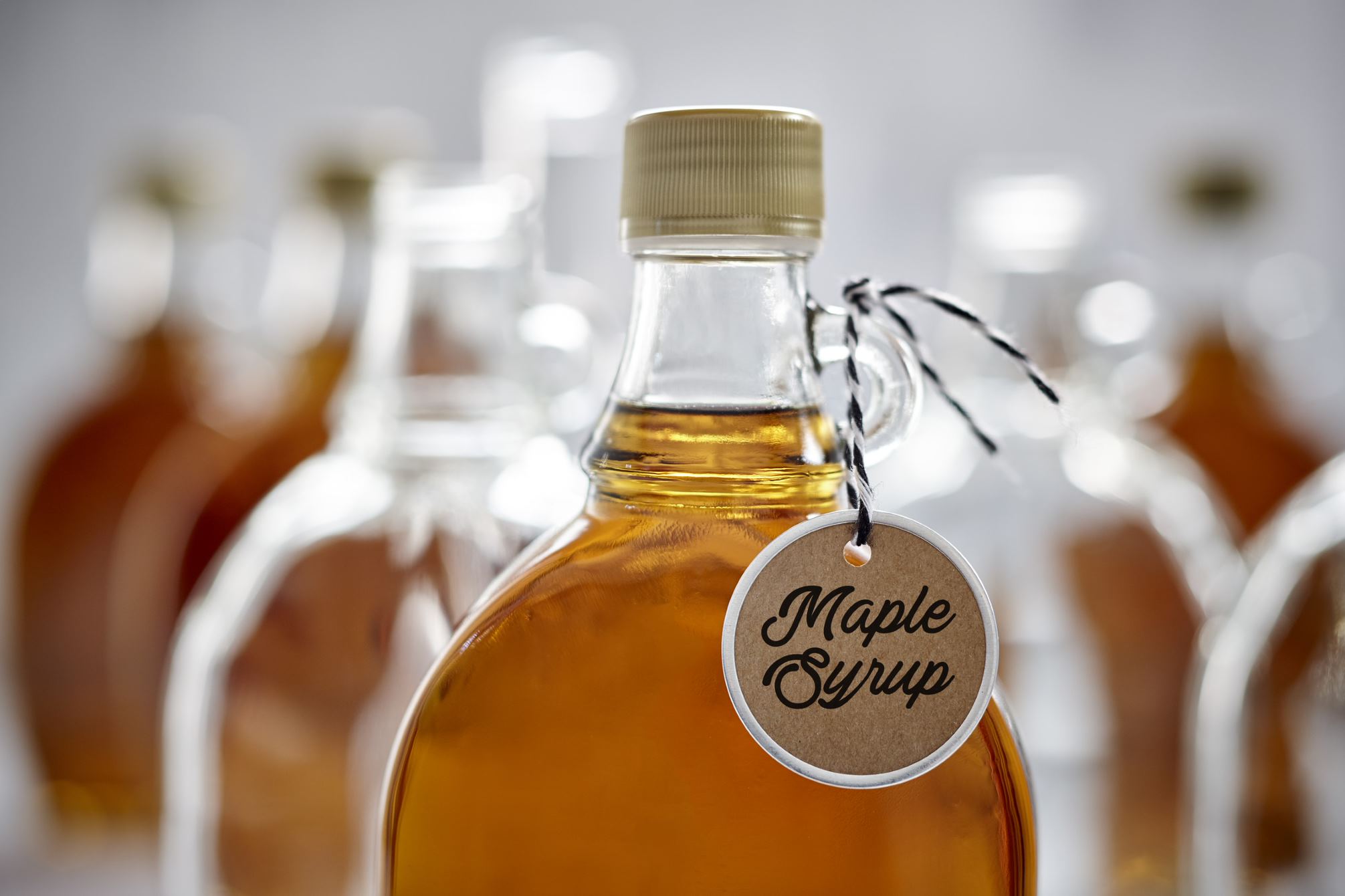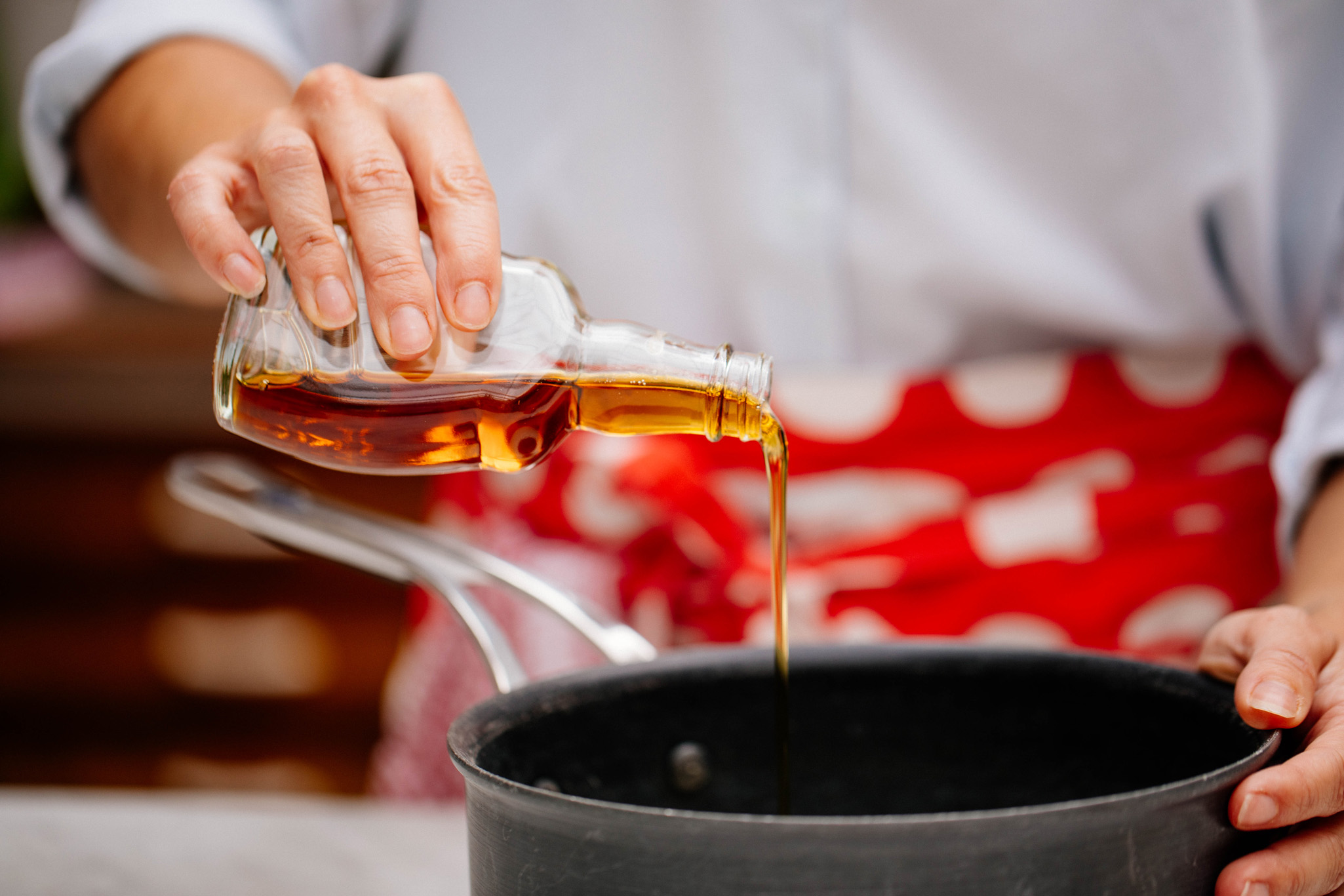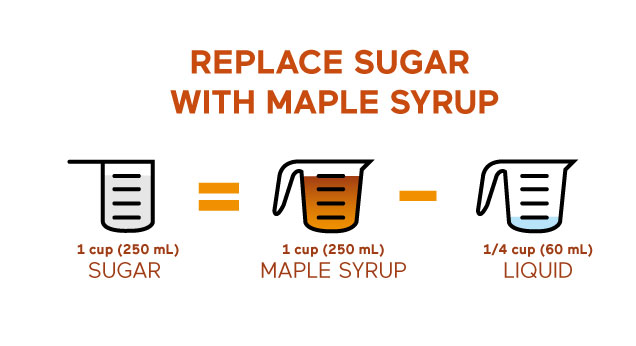Maple Syrup vs Sugar
Is maple syrup better for you than sugar?
WHICH SWEETENER IS BEST?
We all know how important it is to limit sugar intake – but this is often easier said than done!
If you’re looking for a healthier alternative to table sugar, natural sweeteners like pure maple syrup are often said to offer more nutritional value.
But is maple syrup really better for you than sugar? And can you substitute sugar for maple syrup in your recipes? Let’s find out!
Maple syrup vs sugar: production
One of the key differences between maple syrup and sugar is that maple syrup is a completely natural product, free from artificial additives.
It’s derived solely from the sugary tree sap found in maple trees, which is collected during the maple harvesting season and then boiled to reduce the water content until only pure maple syrup is left.

Learn about the maple syrup production process in greater detail below.
Most table sugar sold in the UK comes from sugarcane and sugar beets. When crushed, these plants produce a sweet liquid that is refined to form granulated sugar, a process which removes the nutrients associated with the plant source.
Most table sugar in UK supermarkets is vegan-friendly, however some sugar brands use bone char during processing, so it’s always best to check the label.
As for maple syrup, bottles labelled “pure maple syrup” or “100% maple syrup” will be derived entirely from maple sap, so they’re perfectly safe for vegans.

Learn more about the vegan credentials of maple syrup below.
Maple syrup vs sugar: nutrition
Maple syrup and sugar have different nutritional profiles in that table sugar has been heavily processed and consists almost entirely of sugar, whereas pure maple syrup retains the nutrients stored in the sap of the maple tree.
| 20ml tbsp pure maple syrup (26.7g) | 20g granulated sugar | |
| Calories | 69 | 77 |
| Fat | 0g | 0g |
| Carbohydrates | 17.8g | 20g |
| Sugar | 16.1g | 20g |
| Protein | 0g | 0g |
| Calcium | 27mg | 0.2mg |
| Manganese | 0.54mg | 0mg |
| Riboflavin | 0.34mg | 0mg |
| Glycaemic index | 54 | 65 |
The nutritional data for sugar in the table above is taken from the U.S. Department of Agriculture, while the data for maple syrup is from our Australian website.
Calories
At around 77 calories per 20g serving, white sugar has slightly more calories than pure maple syrup, which has 69 calories per serving.
This may not seem like a big difference, but the calories can add up when using larger quantities for baking or cooking.
Carbohydrates
Given that table sugar is essentially just pure sugar, so it’s no surprise to find that it has more carbohydrates than maple syrup.
Maple syrup has around 17.8g of carbohydrates per serving, with these consisting mainly of sucrose.
Fat
Table sugar is completely free of fat, while maple syrup has a tiny amount at 0.02g per serving.
Vitamins and minerals
White sugar has little to no vitamins or minerals, as they are mostly removed during processing.
Pure maple syrup, on the other hand, contains several vitamins, minerals and antioxidants, with the natural sweetener known as a source of riboflavin and manganese.
Glycaemic index
Refined sugars like table sugar have a higher glycemic index than pure maple syrup, which means they raise blood sugar levels more quickly after entering the body.
Maple syrup vs sugar: health benefits
If you’re looking for a healthier alternative to table sugar, research suggests pure maple syrup offers greater nutritional value.
The natural sweetener contains 67 different polyphenols, some of which have been found to have antioxidant properties.
One study into the effects of replacing refined sugar with maple syrup found that the natural sweetener was better for cardiometabolic health.
The test group, which substituted refined sugar for maple syrup, reported decreased blood pressure and a reduction in belly fat.
Ultimately it’s best to reduce your consumption of sweeteners, however if you are to pick one maple syrup seems to be slightly better for your health.

Learn more about the potential health benefits of pure maple syrup below.
Can you replace sugar with maple syrup?
When it comes to replacing sugar with maple syrup in a recipe, it’s generally recommended to use less maple syrup. Maple has a slightly stronger taste than table sugar, so you only need to use ¾ cup for every full cup of table sugar.

If you’re preparing a recipe that needs to be made with a granulated sweetener, you can always use maple sugar as a natural alternative to white or brown sugar.
So, is maple syrup better than sugar?
As a natural sweetener, pure maple syrup contains more nutrients than table sugar and is therefore considered a healthier alternative to table sugar. However, it’s still high in sugar, and like any sweetener should be enjoyed in moderation.
That said, if you are to pick one, pure maple syrup is the natural choice.
Want to incorporate maple syrup into your cooking and baking? Be inspired by checking out our huge range of maple syrup recipes!
A natural source of energy
Maple syrup is a natural source of energy. Check out our recipes for food and drinks before, during, and after exercise.
)